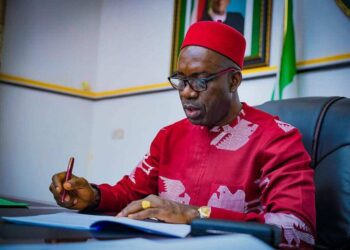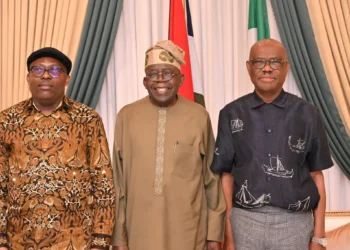Senator Natasha Akpoti-Uduaghan has completed her six-month suspension from the Senate, clearing the path for her return to legislative activities after a contentious period that highlighted tensions within Nigeria’s upper legislative chamber.
The Kogi Central lawmaker’s suspension, which began on March 6, 2025, prohibited her from attending plenary sessions, entering the National Assembly premises, and accessing official resources following accusations of violating Senate regulations.
Throughout the disciplinary period, Akpoti-Uduaghan maintained that the punishment represented a targeted persecution campaign, insisting that her suspension was retaliation for filing a sexual harassment petition against Senate President Godswill Akpabio.
The situation escalated dramatically in July when the suspended senator attempted to force her way back into the National Assembly complex, accompanied by her legal team and brandishing what she claimed was a court order mandating her reinstatement. The confrontation created significant disruption within the legislative complex and reignited national conversations about parliamentary accountability and gender dynamics in Nigerian politics.
As her suspension period concludes, focus has shifted to how the Senate leadership will receive Akpoti-Uduaghan upon her anticipated return, particularly given the ongoing tensions between her and the chamber’s hierarchy.
Senate President Akpabio indicated in August that he expected an apology from the suspended lawmaker, cautioning that the Senate chamber should not be treated as entertainment or a reality television show. His comments suggested that reconciliation might require acknowledgment of wrongdoing from Akpoti-Uduaghan.
Kenny Okolugbo, an aide to the Senate President, revealed additional insight into the legal dimensions of the dispute, noting that Akpoti-Uduaghan’s decision to pursue her case at the Appeal Court demonstrated that the lower court judgment she had cited did not actually nullify her suspension as she had claimed.
The completion of the six-month penalty period now sets the stage for what could be another dramatic chapter in this ongoing saga, as both sides prepare for the lawmaker’s potential return to regular Senate proceedings amid unresolved institutional and personal conflicts.

















